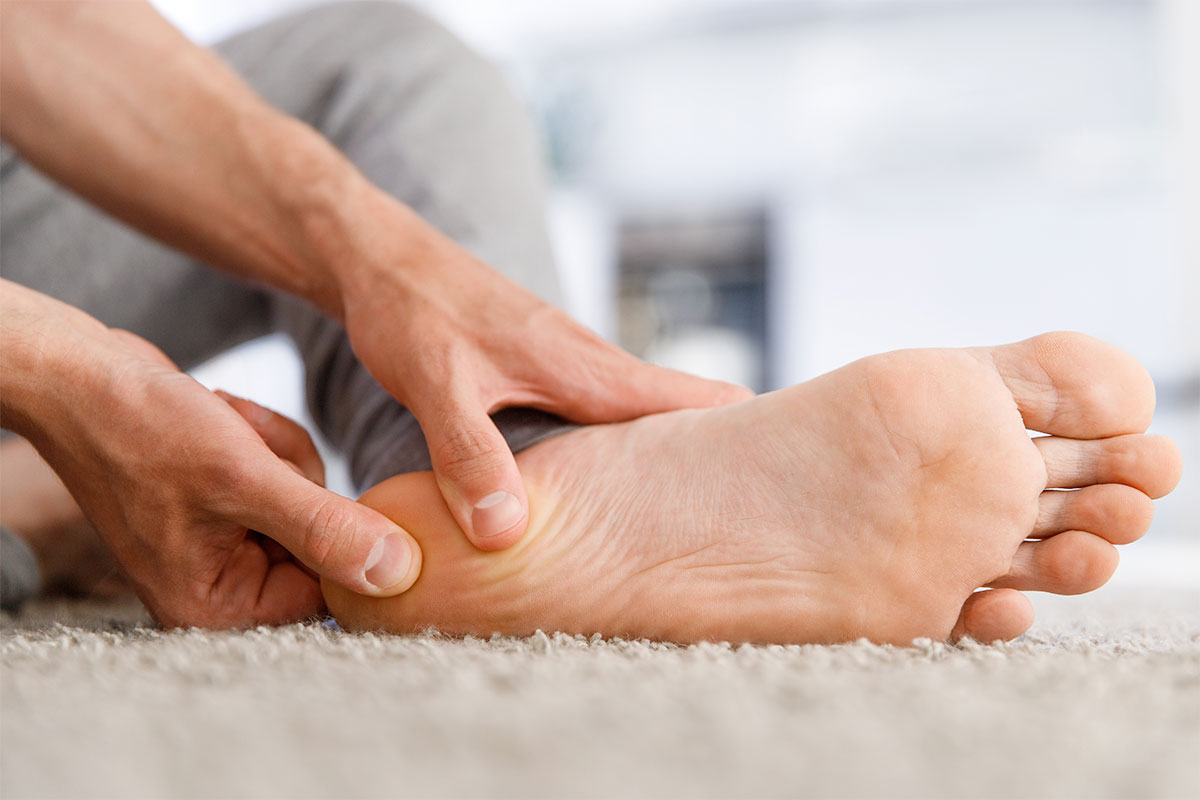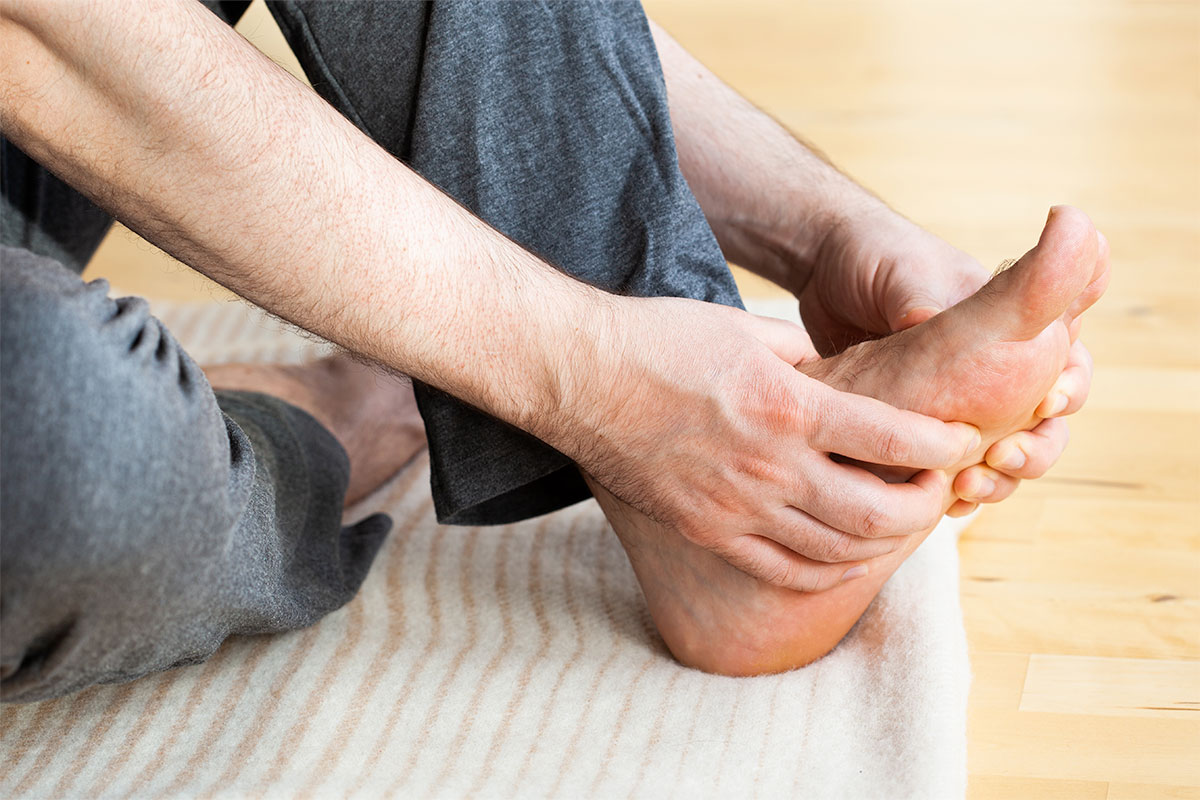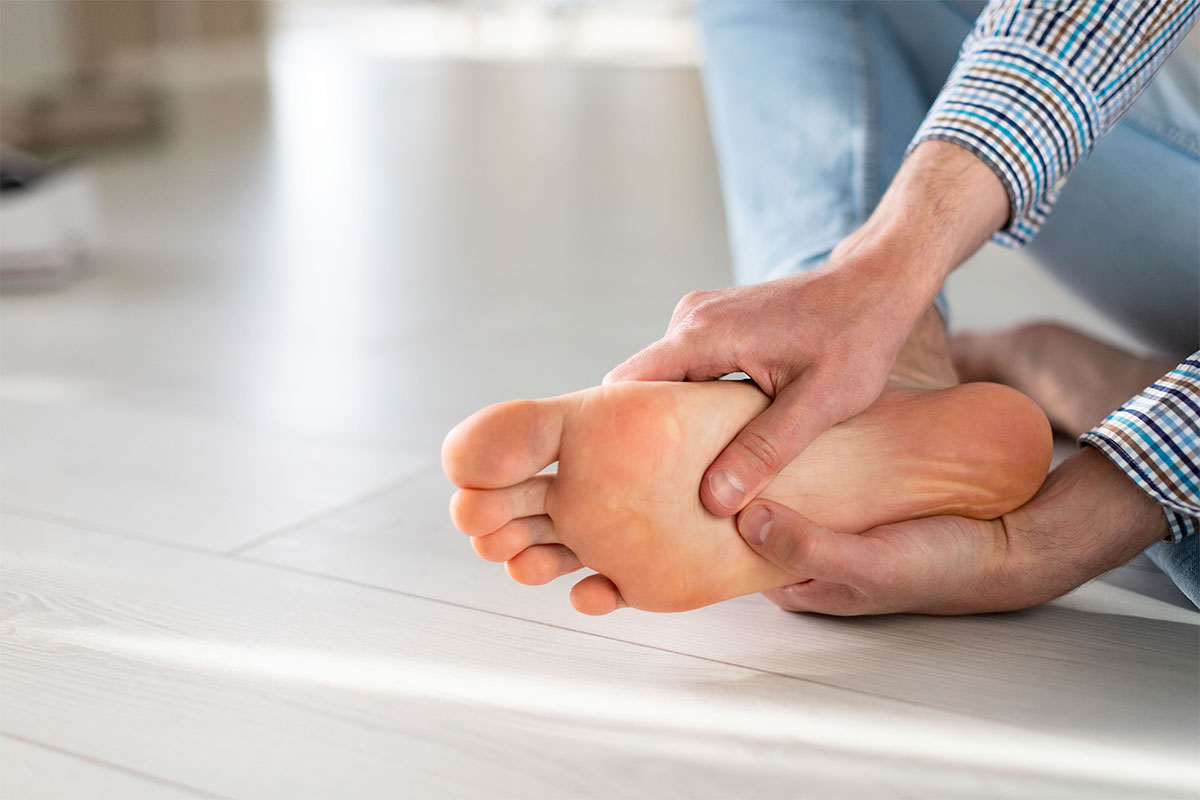
Plantar Fasciitis
Plantar Fasciitis is a prevalent cause of heel pain, affecting a wide demographic. It arises from strain and inflammation of the plantar fascia, a robust band of connective tissue. This tissue extends from the heel bone (calcaneus) across the foot’s sole to the toes, playing a crucial role in maintaining the arch of the foot. Excessive force or repetitive stress can cause micro-tears in the fascia, leading to the painful condition known as plantar fasciitis.
Common Causes of Plantar Fasciitis
- Engaging in running sports that place high demands on the foot’s arch
- Activities involving high-impact landings
- Poor foot biomechanics, including inadequate alignment and movement patterns
- Flat feet or weak arches, which increase strain on the plantar fascia


Symptoms Of Plantar Fasciitis
The symptoms of plantar fasciitis can vary in intensity but often include:
- Sharp, stabbing pain at the base of the heel
- Discomfort when taking the first steps in the morning or after prolonged periods of rest
- Pain that worsens with walking, standing, or exercising
- Difficulty in toe extension, which may exacerbate the pain
Given that muscle imbalances and poor foot biomechanics are primary contributors to plantar fasciitis, it’s essential to conduct a comprehensive assessment. This allows for an accurate diagnosis, understanding the condition’s severity, and crafting a targeted treatment plan to prevent further episodes.
How Myotherapy Can Help
Our Myotherapists are equipped with the expertise to assess and treat plantar fasciitis effectively. They create a personalized treatment plan aimed at alleviating pain and restoring optimal function. Key components of the treatment plan include:
- Soft and Deep Tissue Massage: To alleviate tension and promote healing in the affected tissues.
- Myofascial Cupping: To enhance blood flow and release restrictions in the fascia and surrounding muscles.
- Myofascial Dry Needling: To target and relax trigger points contributing to pain and dysfunction.
- Stretching: To improve flexibility in the foot and calf muscles, reducing strain on the plantar fascia.
- TENS (Transcutaneous Electrical Nerve Stimulation): To provide pain relief through electrical stimulation of the muscles and nerves.
- Hot and Cold Therapies: To manage inflammation and stimulate blood flow for healing.
- Taping: To support the foot’s arch and reduce stress on the plantar fascia.
- Postural and Corrective Exercises: To address biomechanical issues and strengthen the foot’s musculature, ensuring durable arch support.

Additionally, our Myotherapists evaluate your footwear and analyze your walking and running patterns. Recommendations are provided to enhance biomechanics and ensure pain-free movement.
Plantar fasciitis, while challenging, can be effectively managed with the right approach. Through Myotherapy, individuals suffering from this condition can achieve significant pain relief, improved mobility, and a swift return to daily activities and exercise, ensuring long-term foot health and well-being.







